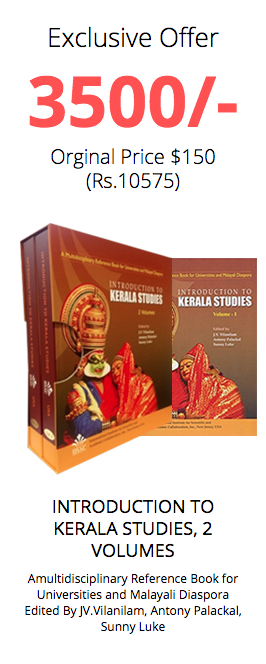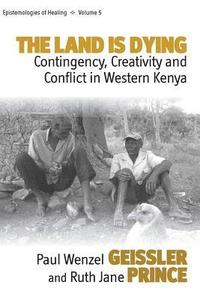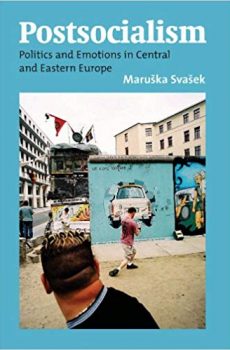
Postsocialism: Politics and Emotions in Central and Eastern Europe
8,400.00₹ 2,870.00₹
In many parts of post-socialist Europe the tumultuous political and economic developments have generated strong emotions, ranging from hope and euphoria to disappointment, envy, disillusionment, sorrow, loneliness, and hatred. Yet these aspects have been largely neglected in analyses of the profound transformations that have taken place in Central and Eastern Europe since 1990. Based on a wide variety of ethnographic case studies focusing on Russian, Siberian, Romanian, Bulgarian, Slovenian, Croatian, Czech, and Polish communities, this volume proves the significance of emotions to post-socialist political processes as an inherent part of the transformations and sheds new light on the impact of local, national, and transnational political forces that have given rise to the resurgence of nationalist sentiments, increasing poverty and marginalization, conflicts arising from the restitution of state property, constitutional changes, and economic deprivation.

Professional Identities: Policy and Practice in Business and Bureaucracy
8,400.00₹ 1,700.00₹
In both professional and academic fields, there is increasing interest in the way in which white-collar workers engage with institutions and networks which are complex social constructions. Covering a wide variety of countries and types of organization, this volume examines the diverse ways in which individuals’ ethnic, gender, corporate and professional identities interact. This book brings together fields often viewed in isolation: ethnographies of groups traditionally studied by anthropologists in new organisational contexts, and examinations of the role of identity in corporate life, opening up new perspectives on central areas of contemporary human activity. It will be of great interest to those concerned with practical management of institutions, as well as those of us who find ourselves working within them.

Racism in Metropolitan Areas
8,400.00₹ 2,190.00₹
For several decades, a political discourse, which incites exclusion and hatred againt those who are perceived as different, has been gaining ground, most notably in affluent and developed countries. Focusing on the growth of racism in large cities and urban areas, this volume presents the views of international scholars who work in the social sciences and statements by non-practicing academics such as journalists and policy makers. The contributions of the scientists and the non-academic specialists are grouped around common themes, highlighting existing debates and bringing together widely scattered information. The book explores the ways in which old forms of racism persist in the urban context, and how traditional exclusion systems like casteism can be likened to contemporary forms like racism directed at refugees.
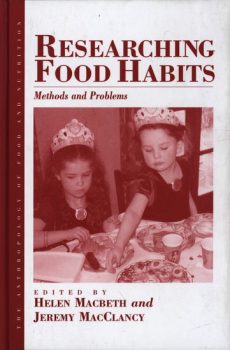
Researching Food Habits: Methods and Problems
8,400.00₹ 2,290.00₹
The term ‘Anthropology of Food’ has become an accepted abbreviation for the study of anthropological perspectives on food, diet and nutrition, an increasingly important subdivision of anthropology that encompasses a rich variety of perspectives, academic approaches, theories, and methods. Its multi-disciplinary nature adds to its complexity. This is the first publication to offer guidance for researchers working in this diverse and expanding field of anthropology.
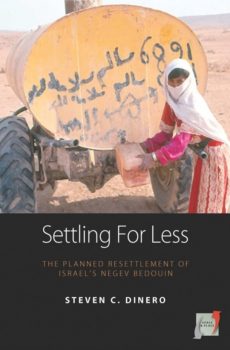
Settling for Less
8,400.00₹ 2,390.00₹
The resettlement of the Negev Bedouin (Israel) has been wrought with controversy since its inception in the 1960s. Presenting evidence from a two-decade period, the author addresses how the changes that took place over the past sixty to seventy years have served the needs and interests of the State rather than those of Bedouin community at large. While town living fostered improvements in social and economic development, numerous unintended consequences jeopardized the success of this planning initiative. As a result, the Bedouin community endured excessive hardship and rapid change, abandoning its nomadic lifestyle and traditions in response to the economic, political, and social pressure from the State―and received very little in return.
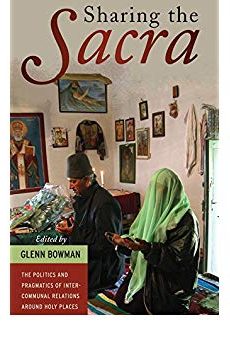
Sharing the Sacra
8,400.00₹ 3,990.00₹
“Shared” sites, where members of distinct, or factionally opposed, religious communities interact-or fail to interact-is the focus of this volume. Chapters based on fieldwork from such diverse sites as India, Nepal, Sri Lanka, China, Turkey, Morocco, Tunisia, and Vietnam demonstrate how sharing and tolerance are both more complex and multifaceted than they are often recognized to be. By including both historical processes (the development of Chinese funerals in late imperial Beijing or the refashioning of memorial commemoration in the wake of the Vietnam war) and particular events (the visit of Pope John Paul II to shared shrines in Sri Lanka or the Al-Qaeda bombing of an ancient Jewish synagogue on the Island of Djerba in Tunisia), the volume demonstrates the importance of understanding the wider contexts within which social interactions take place and shows that tolerance and intercommunalism are simultaneously possible and perpetually under threat.
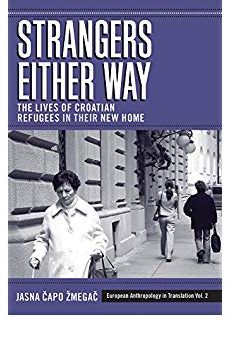
Strangers Either Way
8,400.00₹ 3,800.00₹
Croatia gained the world’s attention during the break-up of Yugoslavia in the early 1990s. In this context its image has been overshadowed by visions of ethnic conflict and cleansing, war crimes, virulent nationalism, and occasionally even emergent regionalism. Instead of the norm, this book offers a diverse insight into Croatia in the 1990s by dealing with one of the consequences of the war: the more or less forcible migration of Croats from Serbia and their settlement in Croatia, their “ethnic homeland.” This important study shows that at a time in which Croatia was perceived as a homogenized nation-in-the-making, there were tensions and ruptures within Croatian society caused by newly arrived refugees and displaced persons from Serbia and Bosnia and Herzegovina. Refugees who, in spite of their common ethnicity with the homeland population, were treated as foreigners; indeed, as unwanted aliens.
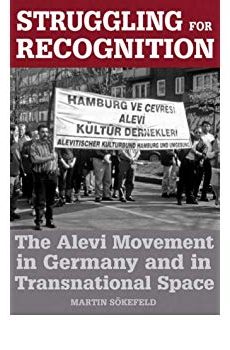
Struggling for Recognition
8,400.00₹ 2,350.00₹
As a religious and cultural minority in Turkey, the Alevis have suffered a long history of persecution and discrimination. In the late 1980s they started a movement for the recognition of Alevi identity in both Germany and Turkey. Today, they constitute a significant segment of Germany’s Turkish immigrant population. In a departure from the current debate on identity and diaspora, Sökefeld offers a rich account of the emergence and institutionalization of the Alevi movement in Germany, giving particular attention to its politics of recognition within Germany and in a transnational context. The book deftly combines empirical findings with innovative theoretical arguments and addresses current questions of migration, diaspora, transnationalism, and identity.
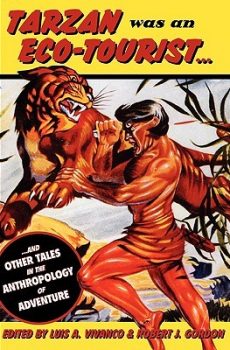
Tarzan was an Eco-Tourist
8,400.00₹ 2,250.00₹
Adventure is currently enjoying enormous interest in public culture. The image of Tarzan provides a rewarding lens through which to explore this phenomenon. In their day, Edgar Rice Burrough’s novels enjoyed great popularity because Tarzan represented the consummate colonial-era adventurer: a white man whose noble civility enabled him to communicate with and control savage peoples and animals. The contemporary Tarzan of movies and cartoons is in many ways just as popular, but carries different connotations. Tarzan is now the consummate “eco-tourist:” a cosmopolitan striving to live in harmony with nature, using appropriate technology, and helpful to the natives who cannot seem to solve their own problems. Tarzan is still an icon of adventure, because like all adventurers, his actions have universal qualities: doing something previously untried, revealing the previously undiscovered, and experiencing the unadulterated. Prominent anthropologists have come together in this volume to reflect on various aspects of this phenomenon and to discuss contemporary forms of adventure.
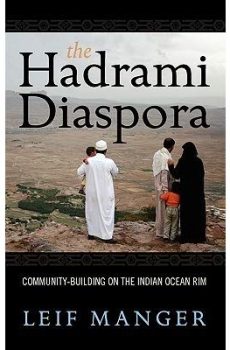
The Hadrami diaspora
8,400.00₹ 2,590.00₹
The Hadramis of South Yemen and the emergence of their diasporic communities throughout the Indian Ocean region are an intriguing facet of the history of this region’s migratory patterns. In the early centuries of migration, the Yemeni, or Hadrami, traveler was both a trader and a religious missionary, making the migrant community both a “trade diaspora” and a “religious diaspora.” This tradition has continued as Hadramis around the world have been linked to networks of extremist, Islamic-inspired movements―Osama bin Laden, leader of Al Qaeda and descendant of a prominent Hadrami family, as the most infamous example. However, communities of Hadramis living outside Yemen are not homogenous. The author expertly elucidates the complexity of the diasporic process, showing how it contrasts with the conventional understanding of the Hadrami diaspora as an unchanging society with predefined cultural characteristics originating in the homeland. Exploring ethnic, social, and religious aspects, the author offers a deepened understanding of links between Yemen and Indian Ocean regions (including India, Southeast Asia, and the Horn of Africa) and the emerging international community of Muslims.

The Life of Property
8,400.00₹ 1,790.00₹
In Béarn, a region of south-west France, longstanding and resilient ideas of property and practices of inheritance control the destinies of those living in the foothills of the Pyrenees. Based on extensive fieldwork and archival research that combines ethnography and intellectual history, this study explores the long-term continuities of this particular way of life within a broad framework. These local ideas have found expression twice at the national level. First, sociological arguments about the family, proposed by Frédéric Le Play, shaped debates on social reform and the repair of national identity during the last third of the nineteenth century – and these debates would subsequently influence contemporary European thought and social policy. Second, these local ideas entered into late twentieth-century sociological categories through the influential work of Pierre Bourdieu. Through these examples and others, the author illustrates the multi-layered life of these local concepts and practices and the continuing contribution of the local to modern European national history.
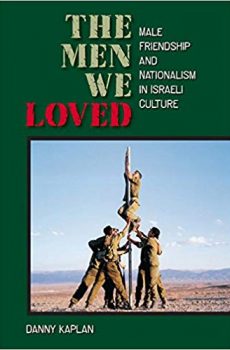
The Men We Loved
8,400.00₹ 2,595.00₹
Some semi-public, exclusive male settings, most noticeably in the military, encourage the production of intimacy and desire. Yet, whereas in most instances this desire is displaced through humor and aggressive gestures, it becomes acknowledged and outright declared once associated with sites of heroic death. In his provocative study of interrelations between friendship in everyday life and national sentiments in Israel, the author follows selected stories of friendship ranging over early childhood, school, the workplace, and some unique war experiences. He explores the symbolism of friendship in rituals for the fallen soldiers, the commemoration of Prime Minister Yitzhak Rabin, and the national infatuation with recovering bodies of missing soldiers. He concludes that the Israeli case offers an extreme instance of a much broader cultural phenomenon: declaring the friendship for the dead epitomizes the political “blood pact” between men, taking precedence over the traditional blood ties of kinship and heterosexual unions. The book underscores nationalism as a homosocial-based emotion of commemorative desire.

The Nomads of Mykonos
8,400.00₹ 3,690.00₹
This is the ethnography of the Mykoniots d élection, a gang of romantic adventurers who have been visiting the island of Mykonos for the last thirty-five years and have formed a community of dispersed friends. Their constant return to and insistence on working, acting and creating in a tourist space, offers them an extreme identity, which in turn is aesthetically marked by the transient cultural properties of Mykonos. Drawing semiotically from its ancient counterpart Delos, whose myth of emergence entails a spatial restlessness, contemporary Mykonos also acquires an idiosyncratic fluidity. In mythology Delos, the island of Apollo, was condemned by the gods to be an island in constant movement. Mykonos, as a signifier of a new form of ontological nomadism, semiotically shares such assumptions. The Nomads of Mykonos keep returning to a series of alternative affective groups largely in order to heal a split: between their desire for autonomy, rebellion and aloneness and their need to affectively belong to a collectivity. Mykonos for the Mykoniots d élection is their permanent stopover ; their regular comings and goings discursively project onto Mykonos space an allegorical (discordant) notion of home .
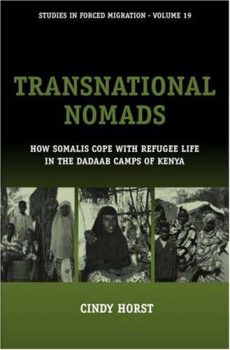
Transnational Nomads
8,400.00₹ 2,790.00₹
The daily pictures of refugee camps, mostly in Africa, make one wonder as to how the refugees manage to survive under these abject conditions. This path-breaking study of Somalis, in a camp in Kenya, offers some explanations. The author argues that it is wrong to look at the camps in isolation, but that one has to consider historical, social and transnational dimensions if one wants to understand the coping mechanisms that enable people to survive. Her book shows how Somalis were able to adapt their “nomadic” heritage to life in the camp, including a high degree of mobility and strong social networks that also reach beyond the confines of the camp as far as the US and Europe.
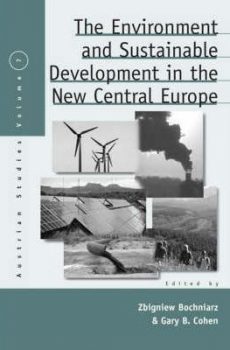
Tuff City
8,400.00₹ 1,990.00₹
This is an important book. In a whole series of ways this study of contemporary Naples will set a bench-mark for urban studies and the way urban history is carried out. It is a book about Naples and thus about the particularities and peculiarities of that specific city. However, this is also a book which goes way beyond Naples itself. It has a lot to tell us about the way the city can and should be studied – about urban studies methodologies – and in this area it is highly original and in some ways sets a new agenda for other researchers, historians, anthropologists, ethnologists, and those using cultural studies approaches. John Foot, University College London This is one of the best books I have read: beautifully written and extremely well researched (a refreshing mix of archival research and participant observation) and superbly theorized, with an impressive knowledge of the range of urban theory, as well as meticulous historical contextualization. Jo Labanyi, New York University …[A]n interesting and readable text. It is scholarly, ambitious in scope and well written.

Unruly Masses
8,400.00₹ 2,295.00₹
Fin-de-Siécle Vienna has become the glorified icon of innovative modernism in the arts and letters. Yet the misery of the masses in the suburbs stood in stark contrast to the urban social order of the wealthy elites who were facing the new ‘collective subjects’of emerging mass politics. The aesthetically highly differentiated culture of these elites opposed a culture of the masses stigmatized as profane and vulgar. Furthermore, their skeptical discourse of reason rooted in the late bourgeois enlightenment was in stark contrast to the irrational ferment of a ‘politics of feeling’that found expression in (German) nationalism and anti-Semitism.
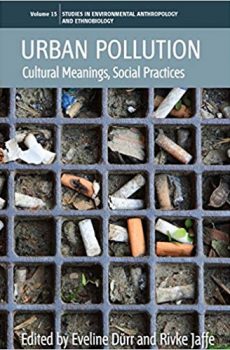
URBAN POLLUTION. CULTURAL MEANINGS, SOCIAL PRACTICES.
8,400.00₹ 3,395.00₹
Re-examining Mary Douglas’ work on pollution and concepts of purity, this volume explores modern expressions of these themes in urban areas, examining the intersections of material and cultural pollution. It presents ethnographic case studies from a range of cities affected by globalization processes such as neoliberal urban policies, privatization of urban space, continued migration and spatialized ethnic tension. What has changed since the appearance of Purity and Danger? How have anthropological views on pollution changed accordingly? This volume focuses on cultural meanings and values that are attached to conceptions of ‘clean’ and ‘dirty’, purity and impurity, healthy and unhealthy environments, and addresses the implications of pollution with regard to discrimination, class, urban poverty, social hierarchies and ethnic segregation in cities.

Virtualism, Governance and Practice
8,400.00₹ 2,595.00₹
Many people investigating the operation of large-scale environmentalist organizations see signs of power, knowledge and governance in their policies and projects. This collection indicates that such an analysis appears to be justified from one perspective, but not from another. The chapters in this collection show that the critics, concerned with the power of these organizations to impose their policies in different parts of the world, appear justified when we look at environmentalist visions and at organizational policies and programs. However, they are much less justified when we look at the practical operation of such organizations and their ability to generate and carry out projects intended to reshape the world.
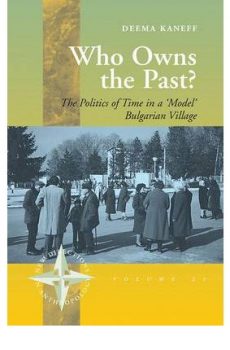
Who Owns the Past
8,400.00₹ 1,995.00₹
In the decades since the collapse of socialism in eastern Europe, time has been a central resource under negotiation. Focusing on a local community that was considered a “model” in the socialist period, the author explores a variety of state-sponsored and unofficial pasts – history, folklore, and tradition – and shows how they “fit” together in everyday life. During the socialist period, the past was a central dimension of local politics and village identity. Post-socialist development has demanded a revaluation of temporality – as well as public and private space. This has led to fundamental changes in social life and political relations, reduced local resources, threatened village identity and transformed political activity through the emergence of new political elites.
While the full implications of this process are still being played out, this study underlines some of the fundamental processes prevalent across eastern Europe that help explain widespread ambiguity vis-B-vis post-socialist reform.

